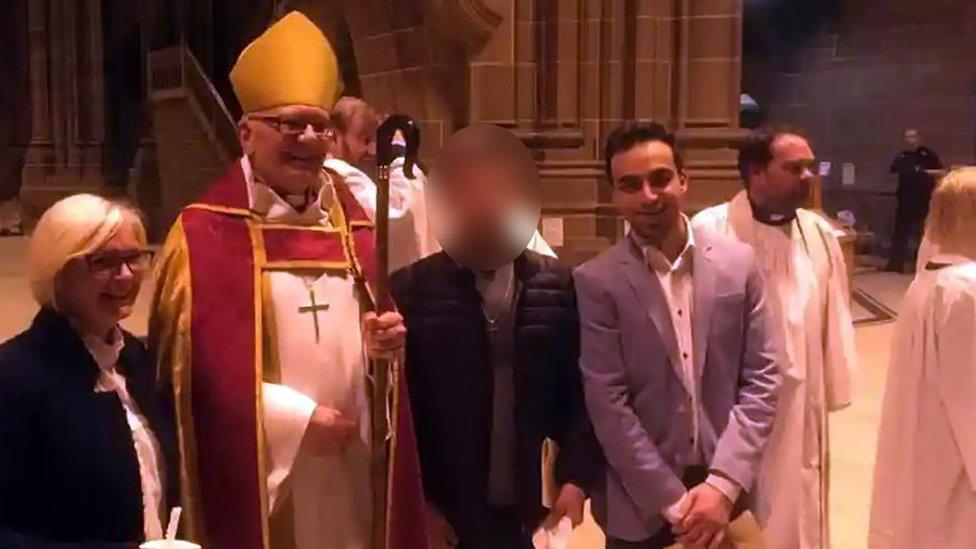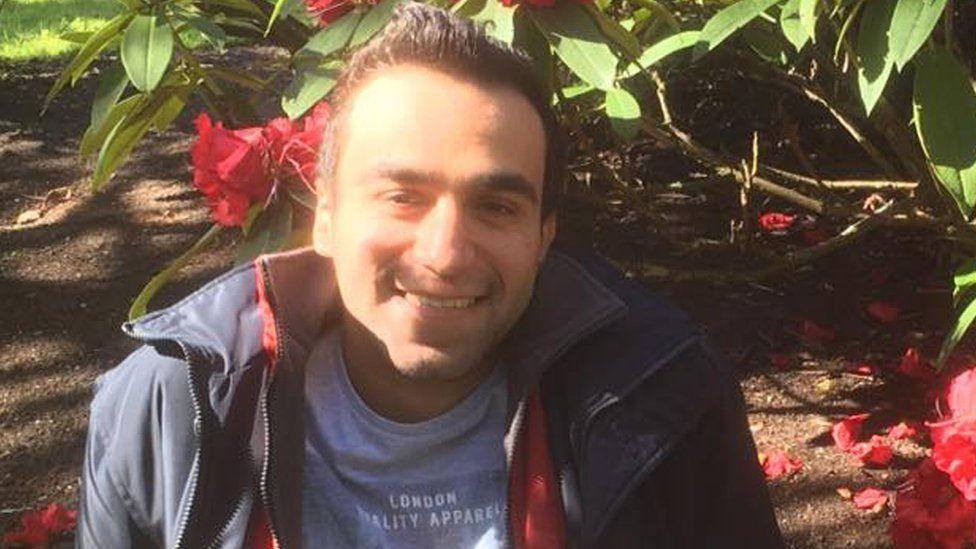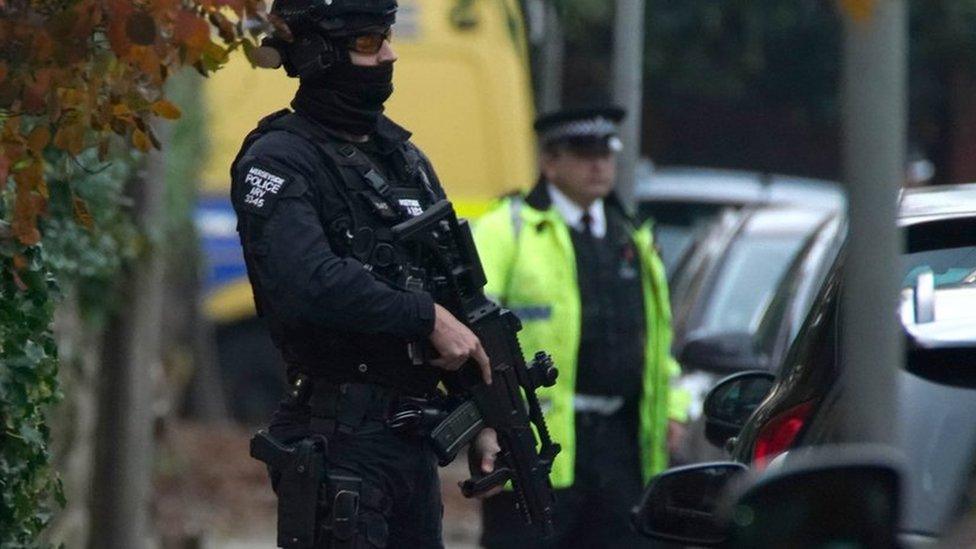Liverpool bomb: Church not aware of converts abusing asylum system
- Published

Emad Al Swealmeen (on right in light grey jacket) during a service at Liverpool's Anglican Cathedral, alongside the bishop Right Reverend Cyril Ashton
The Church of England says it is not aware of any link between conversion and asylum system abuse after it emerged Liverpool bomb attacker Emad Al Swealmeen had become a Christian.
Al Swealmeen, who died in the attack on Sunday, was a failed asylum seeker who had been refused permission to stay in the UK.
It comes after newspaper reports suggested changing religion could be a way to "game the asylum system".
The Home Office declined to comment.
Al Swealmeen, 32, who was born in Iraq, died in the explosion outside Liverpool Women's Hospital. Police believe he had been planning an attack for months.
He had made a legal attempt to gain permission to stay in the UK but it was rejected without being considered in court.
It is not clear if the Home Office told Al Swealmeen he would be removed from the country or if it took any steps towards doing so. And it is not yet known where he was seeking asylum from.
In a statement, the Church of England said "it is not the role of clergy" to establish whether an asylum claim was legitimate.
And the Church's home affairs adviser said baptism was taken "extremely seriously", external and not carried out just because it was asked for - "and never as a means to dodge the law".
There is no evidence being a member of the Church would fast-track an asylum claim, said Benedict Ryan, who also pointed out there were "many genuine Christian converts" who sought asylum.
Liverpool Cathedral, where Al Swealmeen's conversion ceremony took place, said it had "developed robust processes" to work out if someone seeking religious conversion was genuine.


If someone can prove they would be persecuted in their home country as a result of their religious belief, that can form the basis of an asylum claim.
In countries such as Iran, religious minorities - and particularly Christians - face intensive oppression. The charity Open Doors ranks Iran as the eighth worst country in the world for Christian persecution and Iranians are the most common nationality claiming asylum in the UK, according to Home Office figures.
Many churches around the UK have large asylum seeker populations and some see high numbers converting from other faiths such as Islam to Christianity.
Church groups say this is because many asylum seekers find support through Christian projects.
But assessing whether someone's religious conversion is real or not is nearly impossible. Previous Home Office initiatives such as asking claimants to recite the Ten Commandments have been criticised for lacking religious literacy.

A spokesperson for the Church of England said while it welcomed all who "choose to make a commitment to Christ", there was "also a need for discernment".
Clergy "must be confident that those seeking baptism fully understand what it signifies", they added.
"However it is not the role of clergy to establish the legitimacy of asylum claims and to assess security implications," said the spokesperson.
"We are not aware of any evidence to suggest a widespread correlation between conversion to Christianity, or any other faith, and abuse of the asylum system."
A Liverpool Cathedral spokesperson said: "Liverpool Cathedral has developed robust processes for discerning whether someone might be expressing a genuine commitment to faith.
"These include requirements for regular attendance alongside taking part in a recognised Christian basics course. We would expect someone to be closely connected with the community for at least two years before we would consider supporting an application."
Al Swealmeen had been baptised in 2015 and confirmed in 2017 but the cathedral lost contact with him the following year.
The cathedral spokesman also said "welcoming people into a worshipping community" was one way it engaged with asylum seekers.
A church worker in Liverpool who once housed Al Swealmeen said he believed he was a "genuine Christian". Malcolm Hitchcott had befriended him through a Christianity course run for asylum seekers.
Members of the congregation at Emmanuel Church in Fazakerley, Liverpool, which Al Swealmeen attended from 2017 to 2019, said he had been "a committed Christian" who baked for church cake sales.
The Reverend Mike Hindley said Al Swealmeen - known to parishioners as Enzo - "made no secret" of the fact he had mental health problems and was "a really kind guy".

MAKING DEATH YOUR LIVING: A showman is forced to trade fairgrounds for funerals to make ends meet
IMAGINE ONE DAY THE WATER JUST KEPT COMING: Where do you go when there is no place but the water?

- Published17 November 2021

- Published16 November 2021

- Published16 November 2021

- Published18 November 2021

- Published12 November 2021
